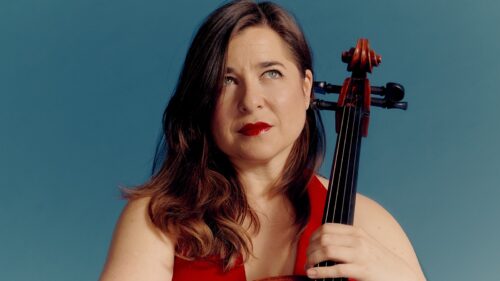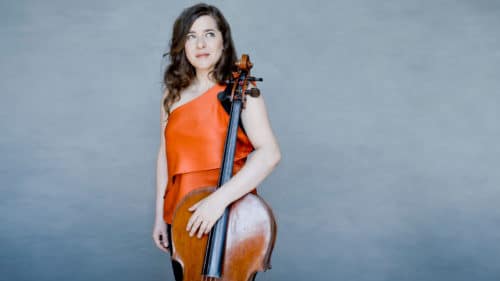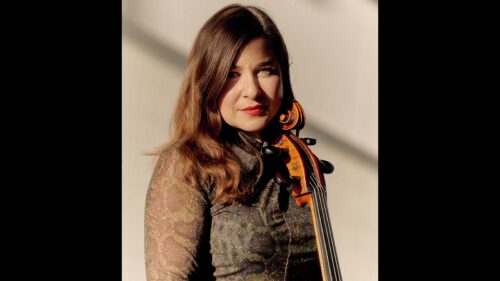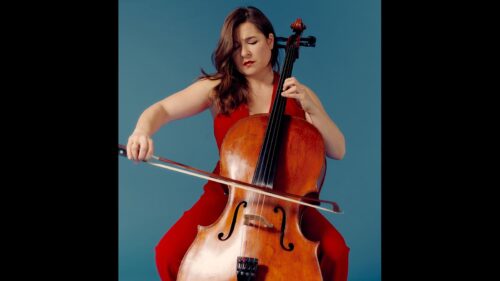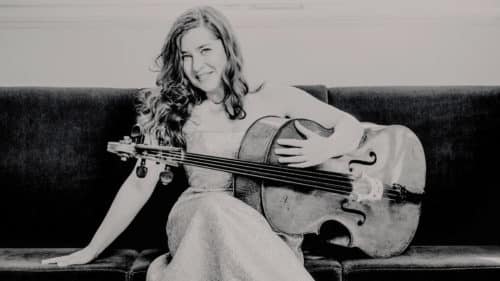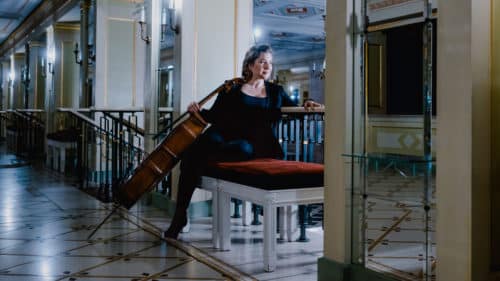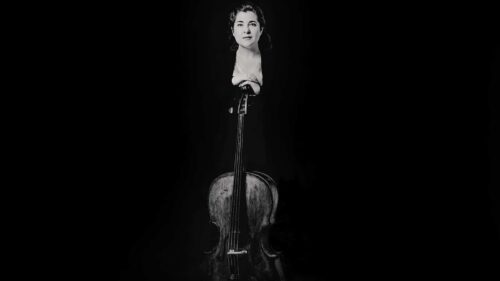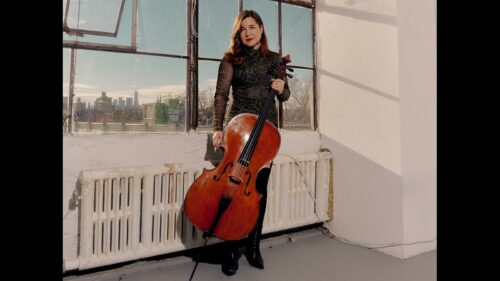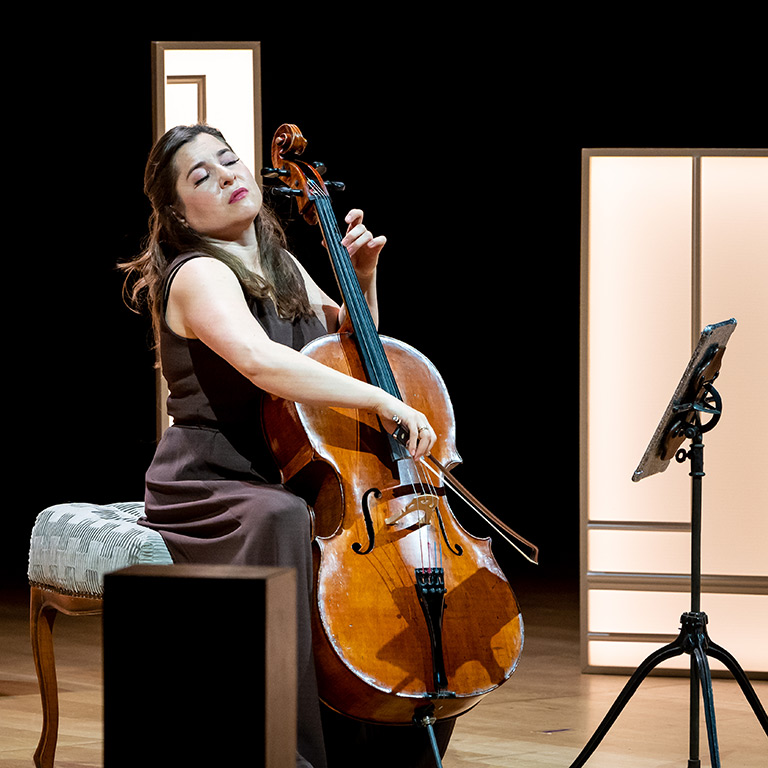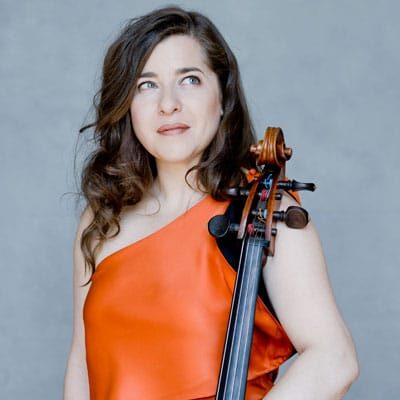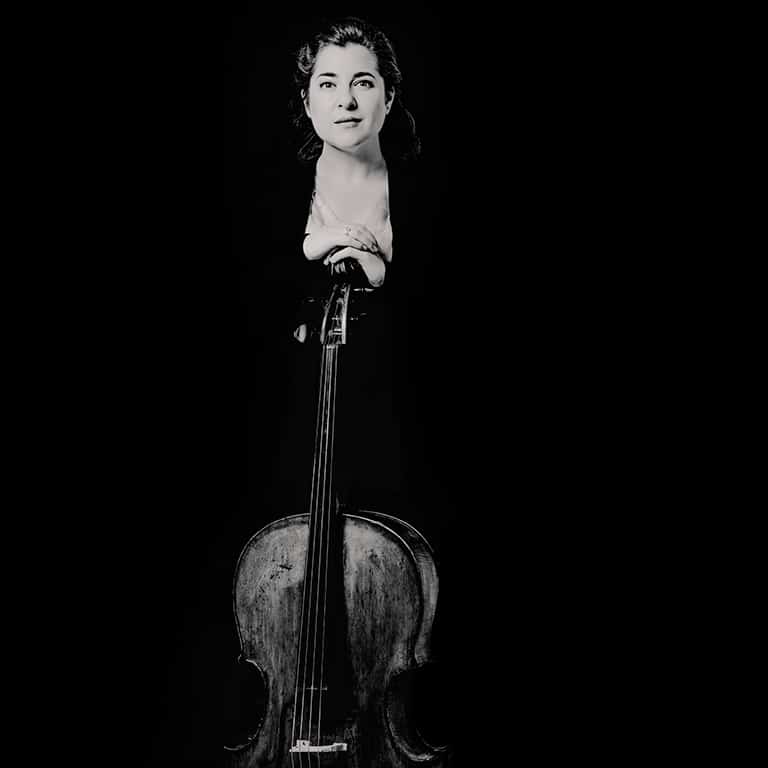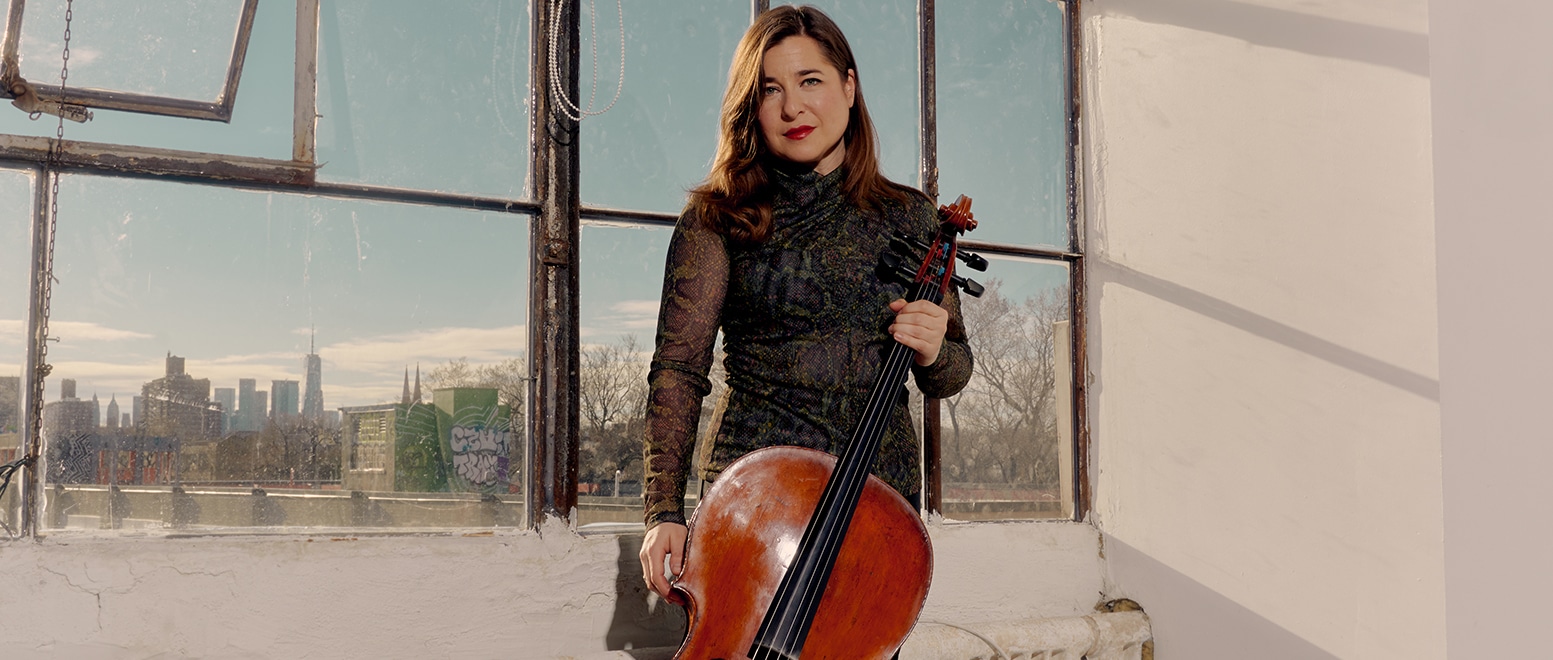
Chicago Tribune“The extraordinary cellist Alisa Weilerstein … gave [Dusapin’s cello concerto] the kind of debut most composers can only dream of achieving…”
Los Angeles Times“Weilerstein’s cello is her id. She doesn’t give the impression that making music involves will at all. She and the cello seem simply to be one and the same.”
The New York Times“[Ms. Weilerstein] radiated such concentration and pleasure, not only in the part she was playing but also in the symphony of sound all around her that watching her became a lesson in the art of listening.”
Musical America“In Alisa Weilerstein, the concerto, which premiered in Los Angeles just days before, has a brilliant advocate. She discharged Ortiz’s furious passagework with aplomb, brought gorgeous tone to the highly chromatic yet lyrical melodic lines and dazzled with double stops and other showmanship in two demanding cadenzas.”
Agence France-Presse“Weilerstein has…been described as a new generation’s cello superstar through performances marked not only for their technical mastery but for their intense feeling.”
The Financial Times“As Weilerstein skillfully and with her customary emotional intelligence started to relax into this fiendishly hard music, the intensity did not let up. There was everything here; sonic colours and textures that brought to my mind a fractal in multi-dimensions: history, future, the now.”
BachTrack“Weilerstein is a passionate, involving soloist, and this concerto puts her through her paces admirably. Besides floating lines at the very top of the instrument’s range, the piece asks for violent, rhythmic sawing, frantic, angular pizzicato passages and cadenzas consisting entirely of either ridiculously high harmonics or finger-twisting double stops. She delivered them all with conviction and clear musical intent.”
New York Magazine“Ortiz tailored the work to Weilerstein’s way of gripping each note and squeezing it for the last drop of expressive juice, and to Dudamel’s love of a crazy musical party.”
Alisa Weilerstein is one of the foremost cellists of our time. Known for her consummate artistry, emotional investment, and rare interpretive depth, she was recognized with a MacArthur “genius grant” Fellowship in 2011. Today her career is truly global in scope, taking her to the most prestigious international venues for solo recitals, chamber concerts, and concerto collaborations with preeminent conductors and orchestras worldwide. “Weilerstein is a throwback to an earlier age of classical performers: not content merely to serve as a vessel for the composer’s wishes, she inhabits a piece fully and turns it to her own ends,” marvels the New York Times. “Weilerstein’s cello is her id. She doesn’t give the impression that making music involves will at all. She and the cello seem simply to be one and the same,” agrees the Los Angeles Times. As the UK’s Telegraph put it, “Weilerstein is truly a phenomenon.”
With her multi-season solo cello project, “FRAGMENTS,” Weilerstein aims to reimagine the concert experience. Comprising six programs, each an hour long, the series sees her weave together the 36 movements of Bach’s solo cello suites with 27 newly commissioned works. Performed in a multisensory production directed by Elkhanah Pulitzer, featuring responsive lighting and scenic elements, each program offers a fully immersive and visceral listening experience. “At its core, FRAGMENTS is about connection,” Weilerstein explains. “I wanted to find new ways of connecting audience with performer, the familiar with the new, and composers of varying generations and backgrounds with one another.” Since premiering them at Toronto’s Koerner Hall in early 2023, she has performed the first two programs at Santa Barbara’s Campbell Hall, San Diego’s Conrad Prebys Performing Arts Center, Cleveland’s Severance Hall, Tanglewood Music Festival’s Seiji Ozawa Hall, Boston’s Sanders Theatre, the Maison symphonique de Montréal, Los Angeles’s Walt Disney Concert Hall, New York’s Carnegie Hall, and the Kennedy Center in Washington, D.C., where she premiered FRAGMENTS 4 in 2024. Over the coming season, she premieres FRAGMENTS 3 at San Diego’s Jacobs Music Center, returns to Carnegie Hall for the New York premieres of FRAGMENTS 2 and 3, and performs the complete cycle at Charleston’s Spoleto Festival USA. She looks forward to touring all six programs in seasons to come.
As a champion of contemporary music, commissioning new works for FRAGMENTS is just one of the ways Weilerstein has demonstrated her commitment to expanding the cello repertoire. As well as working extensively with Lera Auerbach, Osvaldo Golijov, and Joseph Hallman, she has premiered important new concertos written for her by three leading contemporary composers: Joan Tower’s A New Day (2021), Matthias Pintscher’s un despertar (2017), and Pascal Dusapin’s Outscape (2016). In the 2024-25 season, Weilerstein brings to life three more concertos of which she is the dedicatee. She gives the world and European premieres of a new concerto by Thomas Larcher with the commissioning New York Philharmonic and Bavarian Radio Symphony; premieres Richard Blackford’s new concerto with the commissioning Czech Philharmonic; and gives the world, Colombian, and New York premieres of Gabriela Ortiz’s new concerto, a Los Angeles Philharmonic and Carnegie Hall co-commission, with Gustavo Dudamel and the orchestra at Disney Hall, Bogotá’s Teatro Mayor, and Carnegie Hall, where the cellist appears three times this season.
Weilerstein’s other 2024-25 concert highlights include performances of Dvořák’s Cello Concerto with the Kansas City Symphony, in opening-night concerts that launch Pintscher’s tenure as its Music Director; of Tchaikovsky’s Rococo Variations, in a festive season-opening concert with the San Diego Symphony and her husband, Rafael Payare, to celebrate the reopening of the newly renovated Jacobs Music Center; of Prokofiev’s Sinfonia concertante with both the Berlin Philharmonic under Lahav Shani and the Orchestre symphonique de Montréal with Payare; of Barber’s Concerto with the Leipzig Gewandhaus Orchestra and Franz Welser-Möst; of Dvořák’s Concerto with the City of Birmingham Symphony Orchestra and her brother, Joshua Weilerstein; and of Pintscher’s un despertar with the composer leading Amsterdam’s Royal Concertgebouw Orchestra. Beyond the symphony hall, she plays Schubert’s String Quintet and more with the Ariel Quartet, in concerts presented by the Philadelphia Chamber Music Society and University of Michigan at Ann Arbor, and joins her regular piano partner, Israeli pianist Inon Barnatan, for duo recitals of Brahms and Shostakovich at Stanford University’s Bing Concert Hall and in Boston’s Celebrity Series.
Having given rapturously received live accounts on three continents, Weilerstein is already recognized as one of the leading exponents of Bach’s six suites for unaccompanied cello. A Billboard bestseller, her Pentatone recording of the complete Bach suites was nominated for a 2021 Gramophone Award, while her insights into his first G-major prelude, as captured in Vox’s YouTube series, have been viewed more than 2.2 million times. During the first weeks of the pandemic, she chronicled her developing engagement with the suites on social media, fostering an even closer connection with her online audience in her innovative #36DaysOfBach project.
As featured in a Gramophone cover story, in 2022 Pentatone released Weilerstein and Barnatan’s recording of the complete Beethoven Sonatas for Cello and Piano. She and the pianist recorded the same composer’s Triple Concerto for a 2019 release with violinist Stefan Jackiw, conductor Alan Gilbert, and London’s Academy of St. Martin in the Fields, and she recorded both Haydn cello concertos as Artistic Partner of Norway’s Trondheim Soloists for release the previous year. Together with her solo Bach set, these Pentatone recordings expand Weilerstein’s already celebrated discography. Earlier releases include the Elgar and Elliott Carter cello concertos with Daniel Barenboim and the Staatskapelle Berlin, named “Recording of the Year 2013” by BBC Music, which made her the face of its May 2014 issue. Her next album, on which she played Dvořák’s cello concerto with the Czech Philharmonic, topped the U.S. classical chart, and her 2016 recording of Shostakovich’s cello concertos with the Bavarian Radio Symphony and Pablo Heras-Casado proved “powerful and even mesmerizing” (San Francisco Chronicle). She and Barnatan made their duo album debut with sonatas by Chopin and Rachmaninoff in 2015, a year after she released Solo, a compilation of unaccompanied 20th-century cello music that was hailed as an “uncompromising and pertinent portrait of the cello repertoire of our time” (ResMusica, France). Solo’s centerpiece is Kodály’s Sonata for Solo Cello, a signature work that Weilerstein revisits on the soundtrack of If I Stay, a 2014 feature film starring Chloë Grace Moretz in which the cellist makes a cameo appearance as herself.
Weilerstein has appeared with all the major orchestras of the United States, Europe, and Asia, collaborating with conductors including Marin Alsop, Daniel Barenboim, Jiří Bělohlávek, Semyon Bychkov, Thomas Dausgaard, Sir Andrew Davis, Gustavo Dudamel, Sir Mark Elder, Alan Gilbert, Giancarlo Guerrero, Bernard Haitink, Pablo Heras-Casado, Marek Janowski, Paavo Järvi, Lorin Maazel, Cristian Măcelaru, Zubin Mehta, Ludovic Morlot, Yannick Nézet-Séguin, Peter Oundjian, Rafael Payare, Donald Runnicles, Yuri Temirkanov, Michael Tilson Thomas, Osmo Vänskä, Joshua Weilerstein, Simone Young, and David Zinman. In 2009, she was one of four artists invited by Michelle Obama to participate in a widely celebrated and high-profile classical music event at the White House, featuring student workshops hosted by the First Lady and performances in front of an audience that included President Obama and the First Family. A month later, Weilerstein toured Venezuela as soloist with the Simón Bolívar Symphony Orchestra under Dudamel and has since made numerous return visits to teach and perform with the orchestra as part of its famed El Sistema music education program.
Born in 1982, Alisa Weilerstein discovered her love for the cello at just two and a half, when she had chicken pox and her grandmother assembled a makeshift set of instruments from cereal boxes to entertain her. Although immediately drawn to the Rice Krispies box cello, Weilerstein soon grew frustrated that it didn’t produce any sound. After persuading her parents to buy her a real cello at the age of four, she developed a natural affinity for the instrument and gave her first public performance six months later. In 1995, at 13, she made her professional concert debut, playing Tchaikovsky’s “Rococo” Variations with the Cleveland Orchestra, and in March 1997 she made her first Carnegie Hall appearance with the New York Youth Symphony. A graduate of the Young Artist Program at the Cleveland Institute of Music, where she studied with Richard Weiss, Weilerstein also holds a degree in history from Columbia University. She was diagnosed with type 1 diabetes (T1D) at nine years old, and is a staunch advocate for the T1D community, serving as a consultant for the biotechnology company eGenesis and as a Celebrity Advocate for JDRF, the world leader in T1D research. Born into a musical family, she is the daughter of violinist Donald Weilerstein and pianist Vivian Hornik Weilerstein, and the sister of conductor Joshua Weilerstein. She is married to Venezuelan conductor Rafael Payare, with whom she has two young children.
JULY 2024
